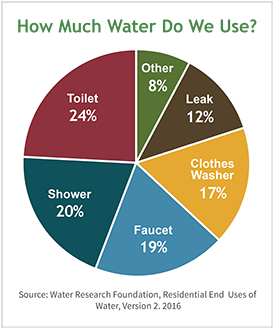Three Ways to Protect Your Septic System
Septic systems seem to be a bit of a mystery. "What is a septic system?" “How do they work?” “How do I protect it?”
Well, we talked a little bit about what they are and how they work here, so now let’s talk a little bit about how we can protect our septic system.
1) Have your tank pumped regularly
Pumping your septic tanks regularly is so important because it gives your field lines and the ground around your septic tank time to dry out, which makes a huge difference over the life of your septic system. The inside of a septic tank consists of three layers: the scum layer, the sludge layer, and the wastewater. When the wastewater from your house enters the tank, it separates due to the solid elements sinking to the bottom (sludge), the fats, oils and grease rising to the top (scum), and the wastewater flowing through the middle into the field lines. You don’t want the sludge or scum layers to grow too high and result in a clogged septic system and likely backup in your house. This is definitely not the desired outcome, so let’s pump those tanks!
2) Be mindful of what you flush
The toilet is not meant to be a central dumping place for undesired items. We need to be aware that there are some things this porcelain god cannot hold. Never flush down diapers, tampons, condoms, hair, paper towels, wipes, coffee grounds, solid foods, grease or oil, cigarette butts, or cat litter. It may seem like common knowledge, but we assure you it is not.
3) Minimize water usage
The average American family uses more than 300 gallons of water per day at home, according to the EPA. All of this water exits the house and goes into the septic system. This is a lot of water for a system to hold and can be troublesome for your tank. It is important to take steps to eliminate wasteful water usage in your bathroom, kitchen, and laundry room. It can be a very effective way to help protect your septic system from wear and tear. Here are some ideas on how to be conservative with your water usage:
Use less sink water
Don't allow too much water to go down the sink for unnecessary reasons. When you are washing your hands, turn the water off while you lather up your soap. While you are washing dishes, don't keep the water running while you are scrubbing each dish, rather wash everything first and then rinse all at one time. When you are brushing your teeth, turn the water off while you are brushing and turn it on only to rinse.
Fill up your dishwasher
Instead of running your dishwasher after every meal, or at the end or every day, wait until it is full to run it. This will ensure you are using your resources most wisely.
Maximize washing machine loads
We recommend you fill up your washing machine before running it as well. Washing small loads can waste a lot of water, so try to fill your washer to its maximum capacity before running it. You can also adjust the load size on your washing machine settings. This will help minimize water usage and slow down damage to your septic tank. Another thing to keep in mind when it comes to washing clothes is keeping the loads you wash per day to a minimum. When you wash multiple loads in one day, it is hard on your septic tank. Water builds up and the tank is overloaded, which does not allow the water in the system to be treated properly. Try to spread your laundry loads throughout the week. We recommend one per day.
Faucet attachments
Another way to conserve water usage is to attach an aerator to the sink faucets in your home. There are also flow reducer nozzles for your shower as well. These attachments do not reduce water pressure, rather insert air in place of water for the same pressure but less water usage.
Take shorter showers
Make your shower quick and efficient. Although showers are relaxing, they use a good amount of water.
Check for leaks
If you notice your faucets leaking, you should look into checking the tension or replacing the faucet. These little leaks can waste a lot of water.

We hope these tips are helpful and give you some easy ways to help protect your septic system. Remember, pump your tank regularly, be mindful of what you flush, and minimize your water usage! If you need your tank pumped, we would love to help you out! Contact us for a free consult and our experts will get in touch with you!
[/et_pb_text][/et_pb_column][/et_pb_row][/et_pb_section]
